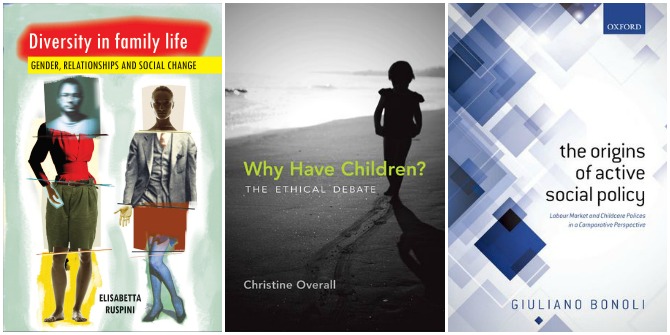 States define who their citizens are and exert control over their life and movements. But how does such power persist in a global world where people, ideas, and products constantly cross the borders of what the states see as their sovereign territory? Engin F. Isin seeks to offer a new way of thinking about citizenship in Citizens Without Frontiers, developing a new image of citizenship using the connectedness principle. Including case studies from Wikileaks and the Gaza flotilla to China’s virtual world and Darfur, this is an excellent resource for those seeking a new vocabulary in citizenship studies, concludes Zalfa Feghali.
States define who their citizens are and exert control over their life and movements. But how does such power persist in a global world where people, ideas, and products constantly cross the borders of what the states see as their sovereign territory? Engin F. Isin seeks to offer a new way of thinking about citizenship in Citizens Without Frontiers, developing a new image of citizenship using the connectedness principle. Including case studies from Wikileaks and the Gaza flotilla to China’s virtual world and Darfur, this is an excellent resource for those seeking a new vocabulary in citizenship studies, concludes Zalfa Feghali.
 Citizens Without Frontiers. Engin F. Isin. Bloomsbury. December 2012.
Citizens Without Frontiers. Engin F. Isin. Bloomsbury. December 2012.
Following on from a series of books on citizenship, including Being Political and Acts of Citizenship, Engin F. Isin continues to push the boundaries of citizenship studies in his latest book, Citizens Without Frontiers. In his earlier work, Isin sets up a series of theoretical premises that are played out in full over the course of Citizens Without Frontiers – specifically, his notion of the “act” of citizenship. With the “act”, Isin breaks from traditional citizenship studies, suggesting that “critical studies of citizenship over the last two decades have taught us that what is important is not only that citizenship is a legal status but that it also involves practices of making citizens – social, political, cultural, and symbolic” (p.17). It is these acts that he is interested in, for, as he notes, “citizenship studies often proceeds with a focus on the three ontic aspects of citizenship: extent (rules and norms of exclusion and inclusion), content (rights and responsibilities), and depth (thickness or thinness of belonging)” (p.17). In his view, while these aspects are crucial to understanding citizenship, they “arrive at the scene too late and do not provide substantive methods for understanding and interpreting the acts and actors of citizenship” (p.37).
What is usually lacking in theoretical studies of new ways of conceiving of citizenship is real life application – in most studies of the contemporary figure of the citizen, the reader will usually find themselves longing for the author to gesture to some way that these (exciting, innovative, perhaps idealistic) ways of thinking about civic belonging can be actualized. Not so with this book. Isin’s great achievement with this study is that he shows that this actualization already exists in the civic and political sphere – and it is citizenship studies that must recognize this and create theoretical frameworks for analysis.
Citizens Without Frontiers is divided into six chapters, each consisting of three ‘genres’: recognizable scholarly chapters, “acts” which function as key exemplars or case studies, and notes. These different forms complement each other and are paced as logical progressions of the same trajectory.
Previously, Isin has noted that to “investigate acts of citizenship in a way that is irreducible to either status or habitus, while still valuing this distinction, requires a focus on those moments when, regardless of status and substance, subjects constitute themselves as citizens – or, better still, as those to whom the right to have rights is due” (p.18). In this book, Isin more relevantly asks: “why have we not witnessed a mobilization called ‘citizens without frontiers’?” Tracing a brief history of Médecins Sans Frontières, Isin highlights how historically it has been professions that traverse borders or frontiers. Accordingly, the idea of ‘citizens without frontiers’ “signifies the kind of politics and political subjects that are emerging and what happens when they enact their political subjectivity traversing frontiers”. His aim, then, is “to participate in creating or constructing a field in which a new figure can acquire capacities to act as a citizen”. What is most paradoxical about these suggestions is the fact that citizenship is, by its very nature, tied to the notion of the demarcated state. Is a citizen still a citizen when she traverses the frontiers that affirm her very existence?
In chapter 5, the title chapter “Citizens Without Frontiers”, Isin imagines a new field in which the citizen without frontiers is an activist whose existence allows us to distinguish between “traversal citizenship” from “universal citizenship.” What is key to remember here, Isin argues, is that citizens without frontiers “exercise a right that does not exist” – in fact what I would argue, does not yet exist, but is a “right” within citizenship studies that Isin theorizes here, for the first time. The three “acts” outlined in this chapter, “Of Declaration: We, the Roma Nation”, “Of Resistance: International Solidarity Movement”, “Of Sharing: Open Rights Group”, bring this argument together. What each of these “acts” has in common is the formation of alternative communities – whether nations, movements, or groups. The formation – and acts – of these communities emphasizes how our understanding of citizenship must be flexible and adaptive to different modes of belonging and group membership that have been critically ignored within citizenship studies.
Following on from this, the final chapter, “Emancipating (Acts of) Citizenship”, makes the useful distinction between the state and the nation. Isin argues that the state is being taken apart from the nation. This is not a new crisis, and Isin acknowledges the long history of tension between the ideas of nation and state. The two “acts” in this chapter – and the final two of the book – are perhaps the most appropriate and certainly the most relevant. “Of Enfranchisement: If the World Could Vote” considers the creation of the “if the world could vote” website set up by individuals in Iceland, where anyone with an internet connection could “vote” in any election around the world – an act of ‘world’ citizenship. Such an act exposes the nature of citizenship as inherently interconnected to global issues in contemporary times.
The last act, “Of Music: Barenboim Without Words”, focuses on the role of art and music to highlight, expose, and transform the notion of an “act” of citizenship. Here Isin allows the ‘act’ takes on all of its meanings in the context of citizenship: the deed, the habitus, the performance, as well as the lie. If Daniel Barenboim and Edward Said’s act of creating the West-Eastern Divan youth orchestra in 1999 was not meant to be “overtly or intentionally political”, this does not mean the act was not actually political, emphasizing “how an act always exceeds the intentions of its subjects.”
Ultimately, Isin’s Citizens Without Frontiers is an excellent resource for those seeking a new vocabulary in citizenship studies. As a scholar working within citizenship studies, I have always found Engin F. Isin’s work utterly compelling. This latest work is no exception.
————————————–
Zalfa Feghali holds a PhD in American Studies from the University of Nottingham for a thesis on the relationship between contemporary American and Canadian poetry, citizenship, and civic acts of reading. Her current research considers the role of the reader in the crafting of 9/11 novels. She is editorial assistant at the Journal of American Studies, and is on the Editorial Committee of the Open Library of the Humanities (www.openlibhums.org). She is an avid ukulele player and can be followed on twitter @zalface. Read more reviews by Zalfa.








The idea of global citizenship for me includes taking responsibility; including paying my taxes and treating my employees with dignity, respect and paying them well for good work to create a sustainable environment for everybody.
Not something amazon is known for.
How come that the LSE does support amazon and not one of the tax-paying alternatives? Why offering the lazy option instead of encouraging your website-visitors to order from their local bookshop?
Global citizenship starts with oneself, with mobilising one’s own organisation.
The LSE included.